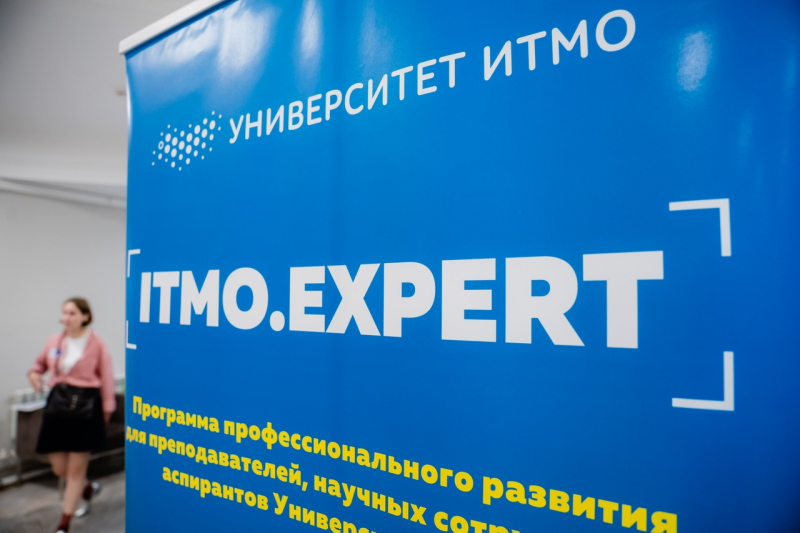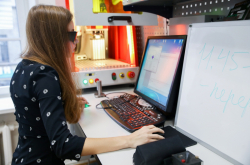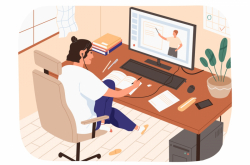At the start of the new academic year, the staff of ITMO University’s Department of Academic Affairs organized a blended learning intensive course that aimed to assist the university’s teaching staff in easily adapting to a new format of the educational process at ITMO.
More than 300 hundred staff members participated in the event, with 100 of the most active and determined participants receiving a professional training certificate confirming their newly-acqured digital competencies.
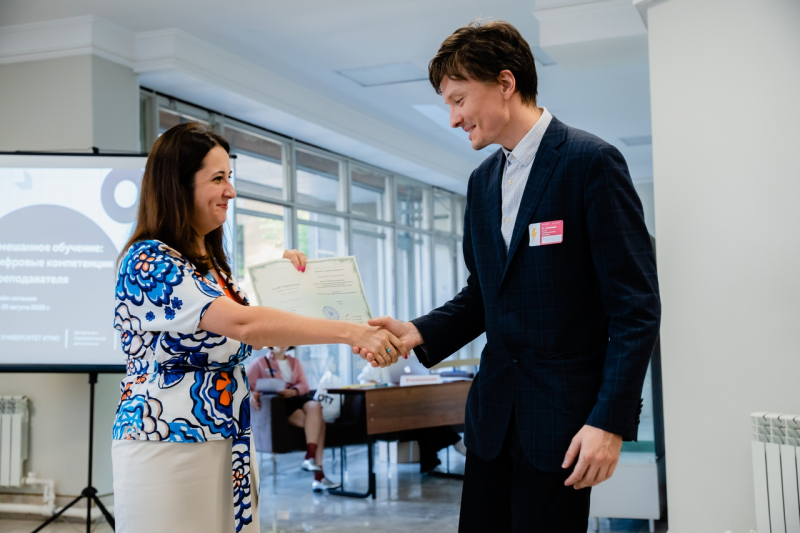
At an official event, all of the participants were personally congratulated by the course’s team and ITMO’s First Vice Rector Daria Kozlova, who underlined the importance of events that develop teachers’ competencies as well as strengthen horizontal relations.
“We’ve discussed it with the Academic Council and the Rector’s office that the task of elevating the role and status of a teacher is our goal for this academic year. And that’s what we’ll be pouring our efforts and resources into for the next few years. We understand that strong teaching staff and strong students are one and the same,” she says.
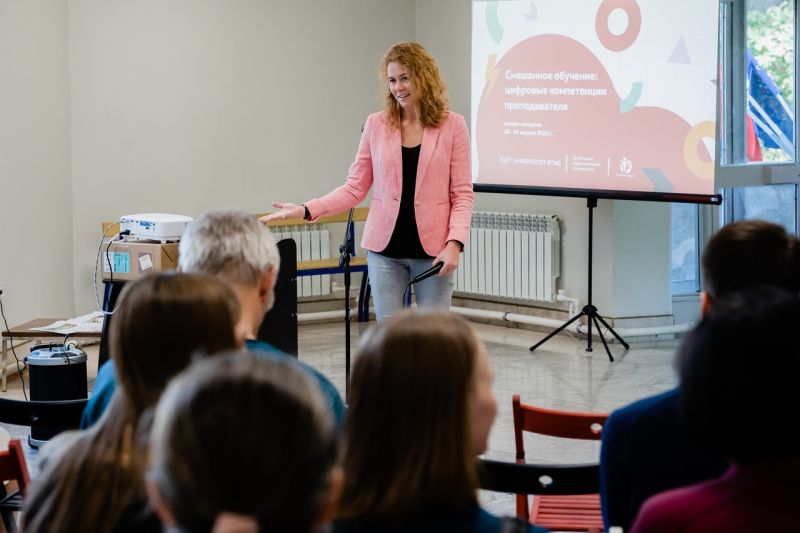
A writer for ITMO.NEWS met with the course’s participants to find out what they’ve learned, how they plan to apply their newfound skills, and how they handled the transition to distance learning.
Ilya Gosudarev
Associate professor at the Faculty of Software Engineering and Computer Systems, head of the Web Technologies Master’s program
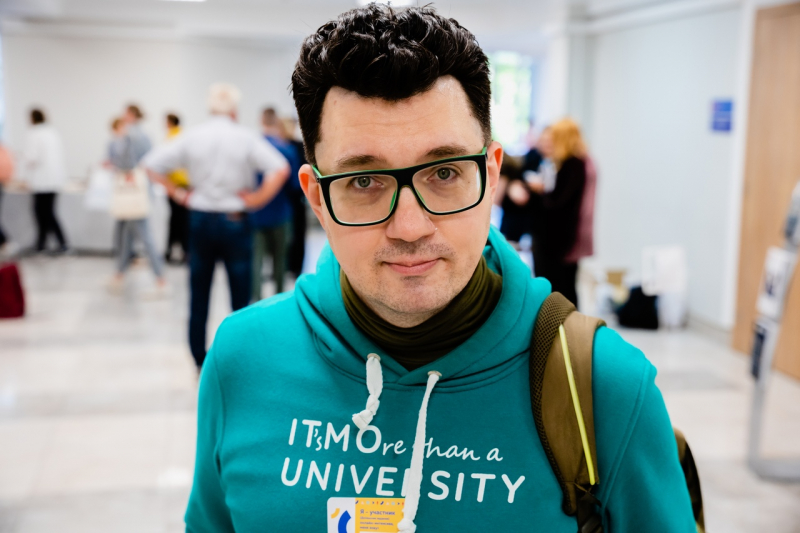
I haven’t been at ITMO that long, so it matters a great deal for me to be able to socialize and establish contacts; to become part of that atmosphere that’s evident as soon as you come to ITMO. To me, it seems as a kind of primordial soup in which startups, initiatives, connections, events, and ideas are born. It’s shocking at first, and you need to know people to find your way and start taking part. For me, this intensive course provided the perfect chance to do that.
Besides, I’ve always been involved in the integration of IT into education, so it was important to me to meet those who do that on a university-wide level, to study their experience and, if possible, make my own contribution.
I’ve already taken part in ITMO.EXPERT a couple years ago and even hosted my own workshop. This time, I didn’t have much time as I’ve been made the head of an educational program. But I’m hopeful that I’ll once again come back as a speaker and share my experience with my colleagues.
To me, the most beneficial was the all-encompassing and systematic presentation on how the university is adopting information technologies and how they’re being introduced into the different levels of education – Bachelor’s, Master’s, PhD.
To me, the transition to distance learning wasn’t a surprise or novelty, as I’ve been involved in that field for a while, and web technologies, which I teach students about, are exactly what it’s all based on. It’s just that these practices have now become widespread and everpresent. So I didn’t really experience any challenges or revelations. Instead, I’ve acquired more experience and mastered the trade – including, among other things, through constructive and effective collaboration with my colleagues.
Elena Kiprushkina
Associate professor at the Faculty of Food Biotechnologies and Engineering, head of the Food Products Quality and Safety Master’s program
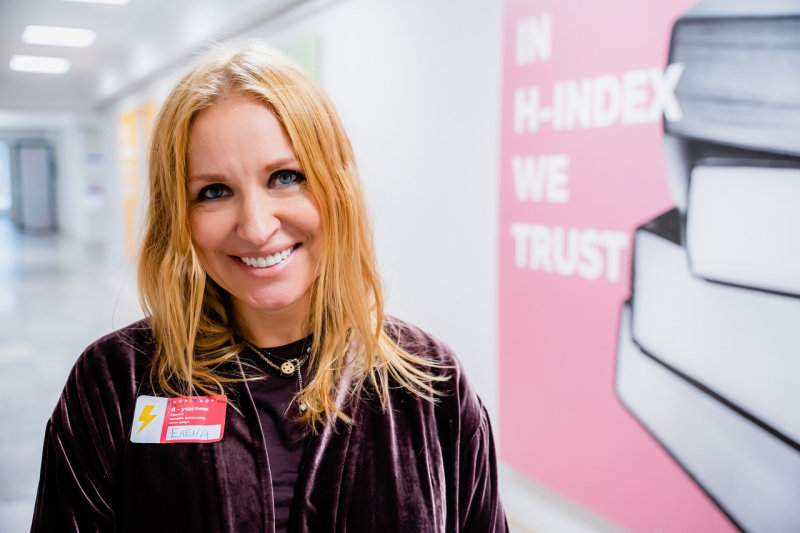
We work at an IT university, and an innovative and actively growing one at that, so it would be impossible for us not to apply modern technologies in teaching, especially now.
Unfortunately I don’t have an IT education, so to me, many of the things in the course were new, especially the tools that are now being used by students and teachers. I’ve had some new ideas on a new discipline – not even thoughts, but a desire. It’s like a second wind. I’d like to create something new that would appeal to both the teachers and the students.
As the head of an educational program, I had to conduct exams remotely, so my colleagues and I have mastered Zoom completely. It’s a unique tool that we first treated with hesitation, but have grown to love since – life doesn’t seem possible without it now.
Daria Martynova
Staff member at the Faculty of Technological Management and Innovations, manager at the Center of Social and Humanities Knowledge, teacher of History of Western European and Russian Culture
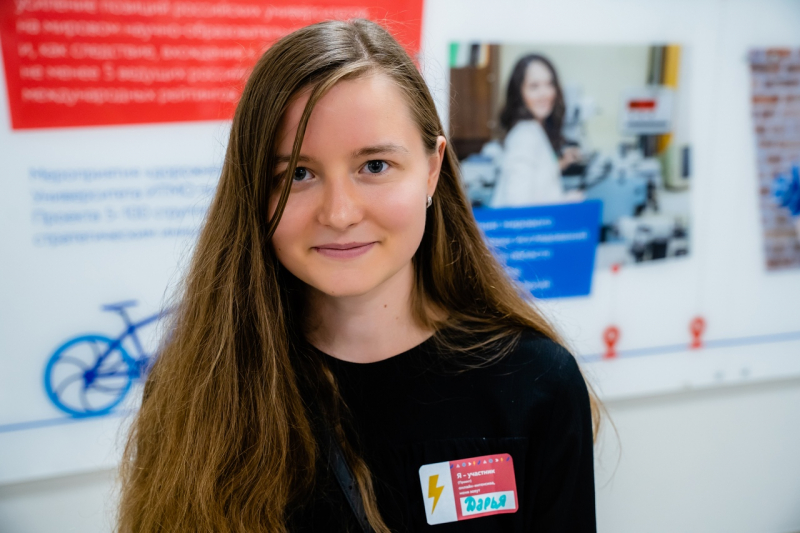
At first, my interest was in professional development and learning to use the various virtual services in light of the current situation in the world and in education. But then, us history teachers got together as a team to work on a project. For us, this course was a starting point in an interdisciplinary project that combines humanities, exact sciences, biology, physics, and so on.
We’re very happy that ITMO.EXPERT gave us this opportunity and allowed us to apply blended learning techniques in practice. The speakers’ lectures allowed us to acquire new skills, learn about various educational platforms, and find out more about gamification.
Elina Chernyavskaya
Soft skills tutor at the Institute of International Development and Partnership
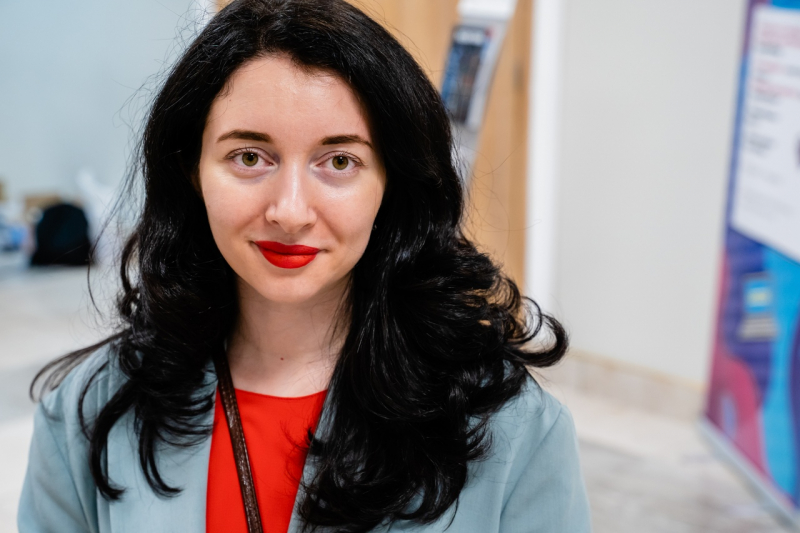
I’ve long been interested in blended learning and modern educational technologies and couldn’t pass up the chance to learn more about the latest tools and practices. At the course, I familiarized myself with many approaches and life hacks that I’ve yet to use and which were new and useful. That includes, for instance, digital whiteboards, gamification, involvement techniques, and new formats – ones that aren’t conventional, but relevant and necessary in today’s circumstances. I think they’ll be becoming only more popular, so it’s important to stay aware and know how to use them.
I participated in a project in which we used non-standard ways of involving students in online classes. We tried to conduct classes not just as lectures or presentations, but interviews: to hold active discussions, work together on notes, and give them a sense of being involved.
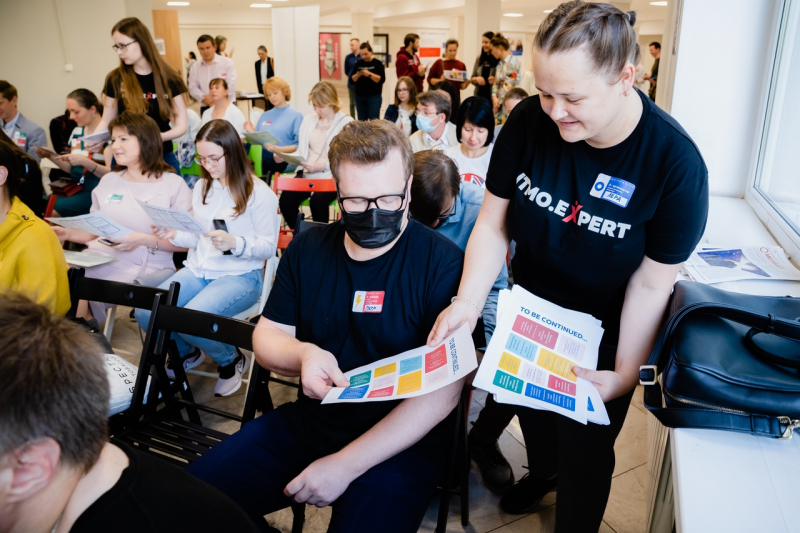
For me, switching to distance learning wasn’t much of a challenge, as my job as an expert involves a lot of online work. Of course, such a format demands more energy, more effort in staying involved and attentive. That’s why you need to develop various skills such as your acting ability, using your voice, and creating scenarios that keep others involved. Those are techniques from the media world that are being used in education. Today, it’s important to not just possess useful knowledge, but to know how to share it with others.
Asal Yuldasheva
English language tutor at the Foreign Language Teaching Center
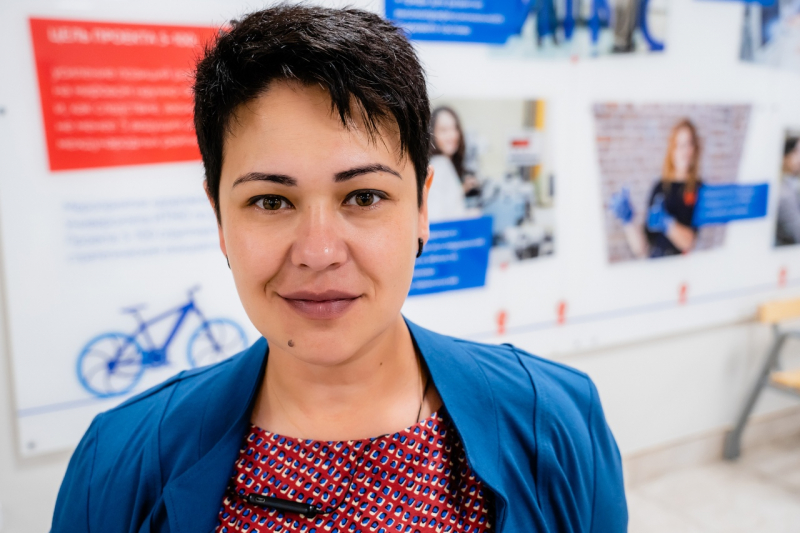
I got into the course by accident after learning about it from a newsletter. I read up on it and realized how interesting and relevant it is.
It was all very well-planned, interesting, and intensive. We also had a good team of specialists, too. We were teachers from different faculties, some of whom had never met or even heard of each other.
The transition to distance learning was only difficult in the first weeks. The most difficult part was getting everyone together and organized. At first, we also struggled with truants who would simply join a call and do their own thing. By the end of the academic year, everyone learned how to work together. Exams were conducted online, too, using Google Forms and Zoom. There were challenges, too: some didn’t have a working camera or a stable connection, some students would even take their exams while walking somewhere on the street. We had to reschedule or tell students to come in for another attempt. But with time, I believe that the issues will be ironed out and such cases will become an exception.
The main tip is this: a student should understand why they’re here and that, if they follow the steps correctly, it’ll all be done from the first try. It’s important to give them all the information and instructions. When we give them all the info in advance, the actual meetings are simpler and easier.
Anton Starovoytov
Associate professor at the Faculty of Photonics and Optical Information, teacher of Fundamentals of Nanotechnology; Nonlinear Optics; Introduction to Professional Activity
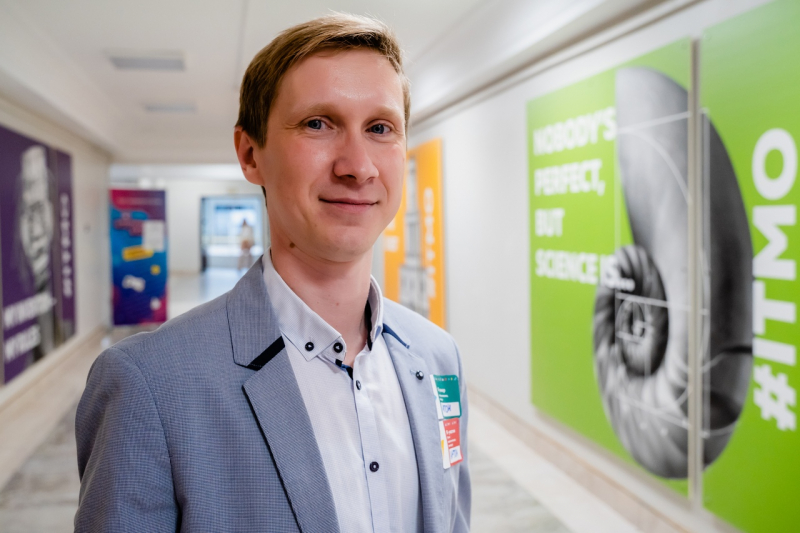
I participated in the course as a speaker, discussing my experience in implementing the Introduction to Professional Activity course for first-year Bachelor’s students using the tools provided within ISU. It was a conscious choice to go with ISU instead of starting a VK page or a message board precisely because all students and staff at ITMO are already signed up to ISU by default. And it has a notification system, too. I continue to promote this format and our department uses ISU to share information with both students and staff. To me, this course was interesting because it allowed me to share my experience as well as learn new things that I could later use in my work.

Personally, I never had any issues with staying organized while working at home. After all, all it means is you get two extra hours of time that you save by not having your commute. But I got the impression that it was somewhat more difficult for students. But if you set specific deadlines, it all goes well.
I handled the transition to distance learning fine, and I have to thank ITMO University for that. This is because in the lead-up to the spring semester, I was able to do an internship in Boston where we learned about teaching in English using various interactive techniques. So I already had a few ideas in mind by the start of the semester, even before we went into quarantine.
To those who struggle with this new format, I would advise checking out ITMO.Distant. I visit it regularly to read some of the tips and instructions. It’s a starting point for all teachers who’d like to switch to the remote format.
